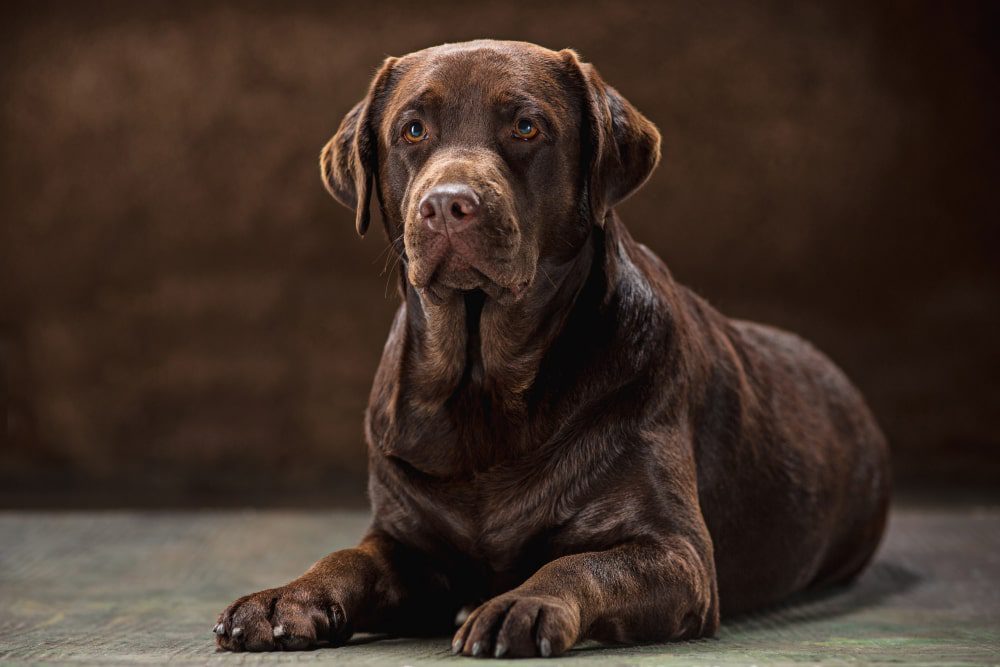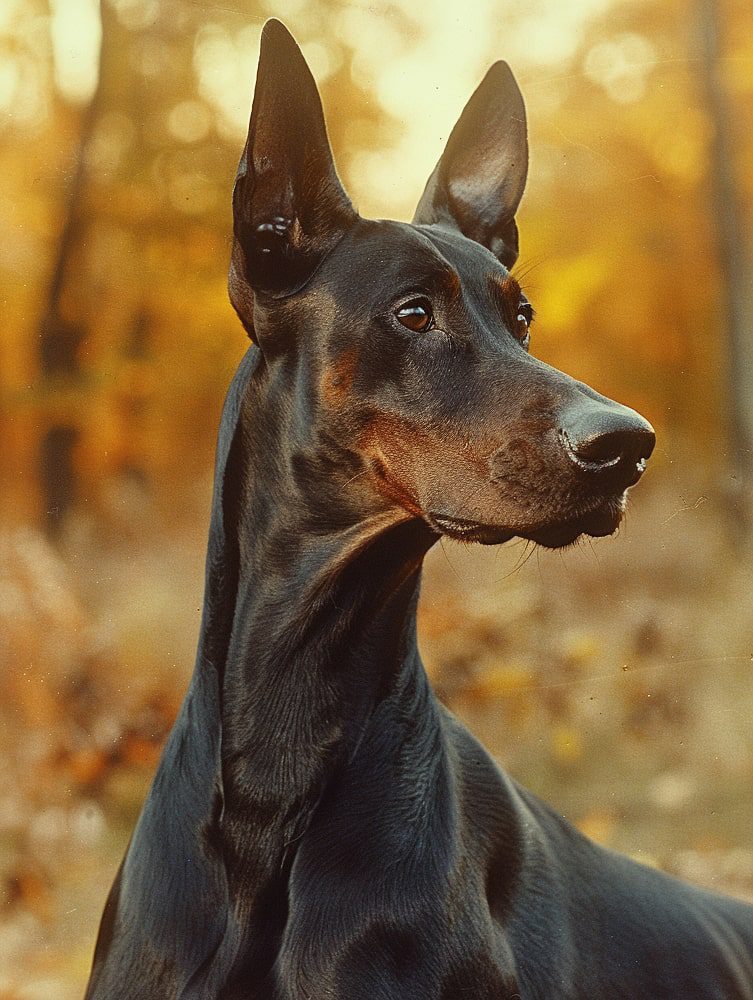Introduction to Blood Tracking
Have you ever wondered how hunters find a game that’s been wounded and wandered off? The secret lies in the extraordinary abilities of blood-tracking dogs. These canine heroes have assisted hunters for centuries, using their incredible noses to track down injured game. Whether you’re a seasoned hunter or a dog enthusiast fascinated by canine capabilities, you’re in for a treat as we explore the world of blood-tracking dogs. In this blog post, we’ll uncover these remarkable dogs‘ history, features, training tips, and stories.
Table of Contents
Characteristics of an Ideal Blood Tracking Dog
Intelligence
Intelligence is a crucial trait for a blood-tracking dog. These dogs need to understand and follow complex commands while making decisions in the field. Smart dogs can quickly learn the nuances of blood tracking, making them invaluable partners to hunters.
Scenting Ability
Imagine having a nose so powerful that you can sniff a trail from miles away. That’s precisely what blood-tracking dogs do. Their superior scenting ability allows them to detect minute traces of blood, guiding hunters to their target. Breeds with highly developed olfactory senses excel in blood tracking.
Physical Traits
No dog can be effective at tracking because it is a very difficult task. However, the best dog for blood-tracking has a powerful and well-built body with high endurance for long distances. These dogs are good at overcoming barriers, such as bushy forests or plains, without necessarily being fatigued by the journey they take.
Top Blood Tracking Dog Breeds
Bloodhounds
Bloodhounds are the poster dogs for blood tracking. Renowned for their exceptional tracking abilities, Bloodhounds have long, floppy ears and wrinkled skin that help them trap and analyze scents. Their dedication and determination make them top-notch trackers.

German Shepherds
German Shepherds are versatile working dogs known for their intelligence and loyalty. With their keen sense of smell and strong work ethic, they excel in blood tracking. These dogs are not only great hunters but also fantastic family companions.
Bavarian Mountain Hound
The Bavarian Mountain Hound is a lesser-known breed gaining popularity among hunters. This breed combines excellent scenting ability with agility and endurance, perfect for tracking wounded game in challenging terrains.
German Wirehaired Dachshund
Although their size may seem small, German Wirehaired Dachshunds are fearsome experts in trailing. These resolute canines possess an outstanding sense of smell for tracking blood while their prey drive remains strong. Their small build enables them to move effortlessly through thick vegetation.
Training Blood Tracking Dogs
Start Early
Training a blood-tracking dog should start when it is still a pup. Young dogs are full of curiosity, and they want to learn everything about their surroundings—this is why it is best to teach them simple tracking tasks at the right time. You may use less complicated scents and make them more complex as time goes by to promote better understanding.
Positive Reinforcement
The consistency and patience requested for blood-tracking dog training are also necessary. Practice is required to keep their abilities updated. Furthermore, it is important for them to be patient and understanding because some dogs can take time before they catch on to these ideas. Each dog learns in its own time, so keep that in mind.
Consistency and Patience
The consistency and patience requested for blood-tracking dog training are also necessary. Practice is required to keep their abilities updated. Furthermore, it is important for them to be patient and understanding because some dogs can take time before they catch on to these ideas. Each dog learns in its own time, so keep that in mind.
Real-life Examples and Success Stories
Jasper the Bloodhound
Jasper, a seasoned Bloodhound, has helped hunters recover countless wounded games. His keen nose and unwavering determination have earned him a reputation as one of the best blood-tracking dogs in the region. Jasper’s success stories highlight the incredible bond between a hunter and their dog.

Luna, the German Shepherd
Luna, a German Shepherd, has proven her worth as a blood tracker in various hunting expeditions. Her intelligence and agility make her a formidable partner in the field. Luna’s ability to quickly locate wounded game has saved hunters valuable time and effort.
Rocky the Bavarian Mountain Hound
Rocky, the Bavarian Mountain Hound, has amazed hunters with his tracking prowess. His ability to cover long distances and navigate challenging terrains makes him an asset in any hunting expedition. Rocky’s success stories inspire hunters to consider this breed for their tracking needs.
The Future of Blood Tracking
Technological Advancements
Advancements in technology are shaping the future of blood tracking. GPS collars and tracking apps are becoming essential tools for hunters. These innovations allow hunters to monitor their dogs’ movements in real time, enhancing the efficiency of blood tracking.
The Role of Dogs in Modern Hunting
Despite technological advancements, dogs remain irreplaceable in modern hunting. Their instincts and unparalleled scenting abilities make them indispensable partners. The bond between hunters and their dogs continues to thrive, ensuring the tradition of blood tracking persists.
Conclusion
Blood-tracking dogs are more than just hunting companions; they are heroes with extraordinary abilities. Their intelligence, scenting prowess, and physical traits make them invaluable in tracking wounded games. From Bloodhounds to German Shepherds, these breeds have proven their worth in the field. Training a blood-tracking dog requires dedication, patience, and positive reinforcement, but the results are incredibly rewarding.
If you’re a hunter looking to enhance your hunting experience or a dog enthusiast fascinated by canine capabilities, consider the impact of blood-tracking dogs. These remarkable animals aid in hunting and strengthen the bond between humans and dogs. With advancements in technology and the timeless skills of these dogs, the future of blood tracking looks promising.
Ready to learn more about blood-tracking dogs and their incredible abilities? Join our community of dog enthusiasts and hunters to learn, share, and celebrate the world of blood-tracking dogs. Happy tracking!
Common Questions About Blood Tracking Dogs
What Age Should I Start Training My Blood Tracking Dog?
The ideal age to train your blood-tracking dog is 8 to 12 weeks. At this young age, puppies are highly receptive to new experiences and eager to learn. Starting early builds a strong foundation for advanced tracking skills.
Can Any Dog Breed Be Trained for Blood Tracking?
Even though numerous dog breeds may be trained for blood tracking, some types are fundamentally designated for this undertaking due to their body composition and sniffing strategies. Bloodhounds, German Shepherds, Bavarian Mountain Hounds, and German Wirehaired Dachshunds are among the most outstanding retrievers.
How Long Does It Take To Train a Blood Tracking Dog?
Teaching your canine companion to follow the blood trail cannot happen overnight; it is an ongoing process that depends on each unique animal involved. Nonetheless, it may take about three months or up to one year before the animal becomes proficient at tracking down prey’s lost blood. Dog training should always be characterized by consistency, patience, and regular drills.
What Kind of Rewards Should I Use During Training?
It is very significant to motivate blood-trailing dogs. You can do this by piling on the rewards, for example, using treats, praise, or even playing with your pooch. This encourages the dog to follow trails and enhances your relationship with it.
How Do I Keep My Blood Tracking Dog in Peak Condition?
For your blood-tracking dog to be at its best, you must engage it in regular exercise, give it a balanced diet, and provide some form of mental stimulation. Regular training sessions play a major role in maintaining the tracking skills that they have acquired. Regular vet check-ups are also vital to the health of these dogs.
Sarah Smith is a passionate dog and cat enthusiast, blogger, and pet care expert. With years of experience researching and writing about various dog breeds cat breeds, she brings a wealth of knowledge and insight to her blog, PetPession.com. Sarah loves exploring the unique traits, histories, and care needs of different breeds, helping pet owners make informed decisions. Her mission is to create helpful, friendly, and well-researched content that both educates and celebrates the joy of pet ownership. When she’s not writing, Sarah enjoys outdoor adventures with her own furry friends.

5 thoughts on “Best Blood Tracking Dog Breeds for Hunters and Enthusiasts”